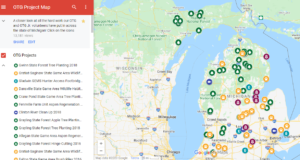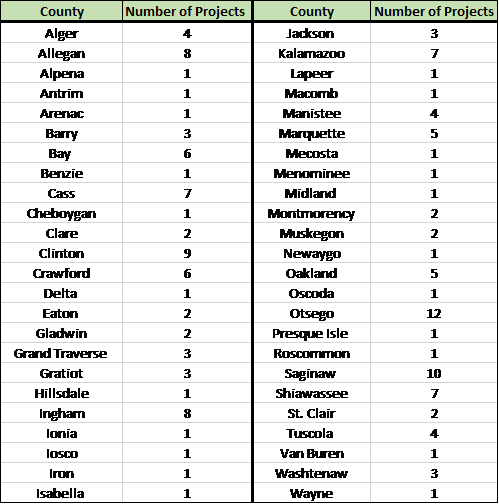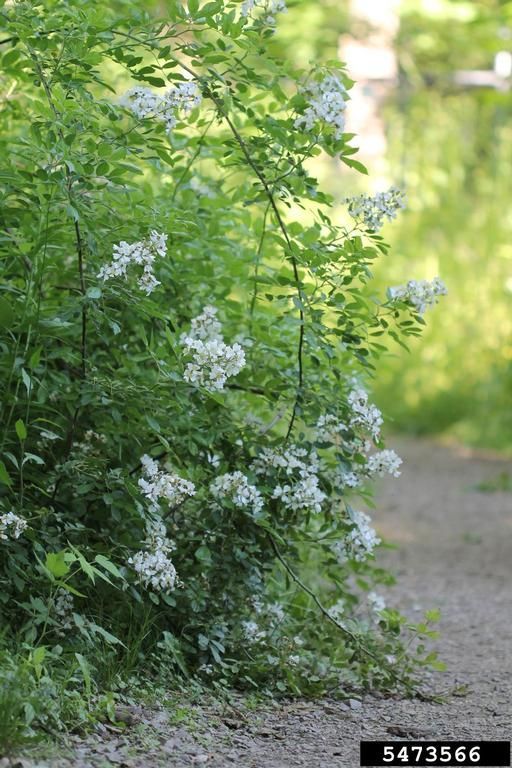On the Ground: Impact Across Michigan

On the Ground program’s wildlife habitat improvement event location map. Accessible by visiting mucc.org/on-the-ground, zooming into specific areas of interest provides more details and selecting an icon provides a synopsis of the habitat work completed. Each icon represents the unique project type completed, such as native tree plantings, invasive species removal, hunter access trail improvements and many others.
The On the Ground (OTG) program has recently completed a thorough program analysis and has been able to organize new data regarding the program’s impact and reach. When we host an OTG wildlife habitat improvement event, we record the location of the event and what Michigan county it is located in. It has long been our goal to have as broad an impact as possible in the state, and this data helps us see what regions we should target for future wildlife habitat improvement events.
Despite consistent program growth, there remain select regions in the state that the OTG program has not had as strong a presence in. This can be due to a number of reasons, two of such being the limited availability of state land in the area (like state game areas or state forests) or the lack of easily-accessible habitat for volunteers to travel to. Despite these limitations, the OTG program intends to focus its future event-planning efforts in more regions across the state.
The program has had a particularly strong presence in the central and south-central Lower Peninsula. This is likely due to the abundant state-owned public land acreage in these regions. The OTG program has improved wildlife habitat in 48 counties (approximately 58% of Michigan’s 83 counties) and hosted a total of 151 events impacting more than 3,000 acres of public land. The most frequently visited counties for events include Otsego, Saginaw, Clinton, Ingham and Allegan.

Listed alphabetically by county name, above is a breakdown of the number of projects completed in each county where the OTG program has improved habitat.
Completed in partnership with local volunteers and the Michigan Department of Natural Resources Wildlife Division, typical events involve weekend projects such as building brush piles for small game, removing invasive trees and other flora, restoring grassland habitat through native flower and grass plantings, installing wood duck boxes, regenerating aspen stands and planting a variety of native trees for wildlife food and cover.
If you have an idea for a wildlife habitat improvement project on state land near you, please contact MUCC Habitat Volunteer Coordinator Makhayla LaButte at mlabutte@mucc.org. We are always looking to grow our award-winning volunteer program, and we appreciate the more than 3,000 OTG program volunteers who have improved wildlife habitat across the state.
The post On the Ground: Impact Across Michigan appeared first on Michigan United Conservation Clubs.
Recent Posts



